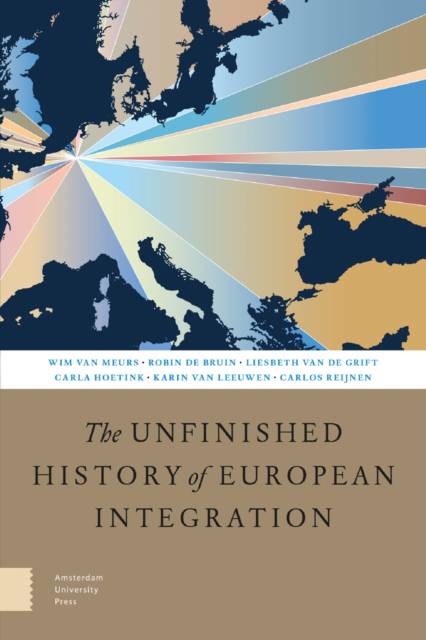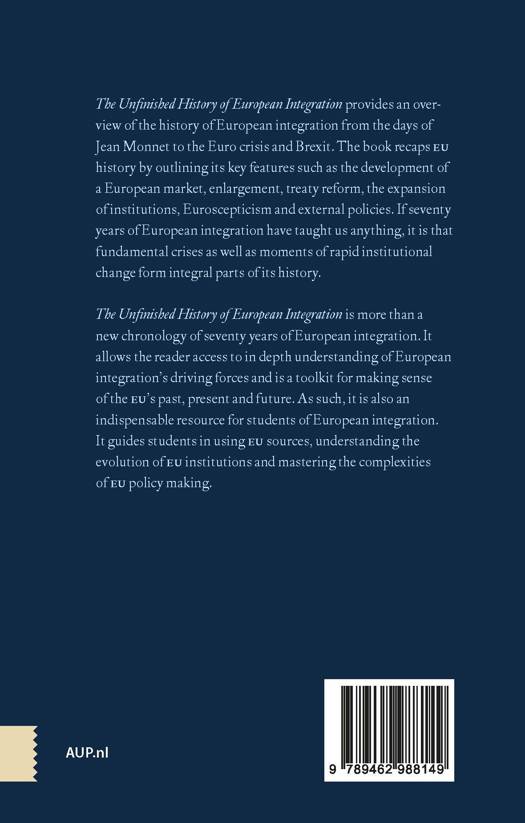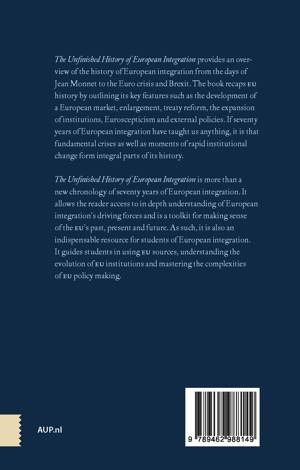
- Afhalen na 1 uur in een winkel met voorraad
- Gratis thuislevering in België vanaf € 30
- Ruim aanbod met 7 miljoen producten
- Afhalen na 1 uur in een winkel met voorraad
- Gratis thuislevering in België vanaf € 30
- Ruim aanbod met 7 miljoen producten
Zoeken
The Unfinished History of European Integration
Wim Van Meurs, Robin de Bruin, Liesbeth Van de Grift, Carla Hoetink, Karin Van Leeuwen, Reijnen
Paperback | Engels
€ 26,99
+ 53 punten
Omschrijving
When the Treaty of Lisbon went into effect in December 2009, the event seemed to mark the beginning of a longer phase of institutional consolidation for the EU. Since 2010, however, the EU has faced multiple crises, which have rocked its foundations and deeply challenged the narrative of 'the end of the history of integration'. The military crisis in eastern Ukraine and the refugee crisis call for a joint approach, but in practice reveal the difficulty of maintaining even the appearance of European solidarity and political unanimity. The financial and socio-economic crisis in southern Europe and Brexit present the EU with the latest set of challenges. If seventy years of European integration have taught us anything, it is that fundamental crises as well as moments of rapid institutional change form integral parts of its history. 'The Unfinished History of European Integration' presents the reader with historical and theoretical knowledge on which well-founded judgements can be based.
Specificaties
Betrokkenen
- Auteur(s):
- Uitgeverij:
Inhoud
- Aantal bladzijden:
- 332
- Taal:
- Engels
- Geïllustreerd:
- Ja
Eigenschappen
- Productcode (EAN):
- 9789462988149
- Verschijningsdatum:
- 15/02/2018
- Nieuwere uitgave:
- Uitvoering:
- Paperback
- Formaat:
- Trade paperback (VS)
- Afmetingen:
- 155 mm x 231 mm
- Gewicht:
- 566 g

Alleen bij Standaard Boekhandel
+ 53 punten op je klantenkaart van Standaard Boekhandel
Beoordelingen
We publiceren alleen reviews die voldoen aan de voorwaarden voor reviews. Bekijk onze voorwaarden voor reviews.













